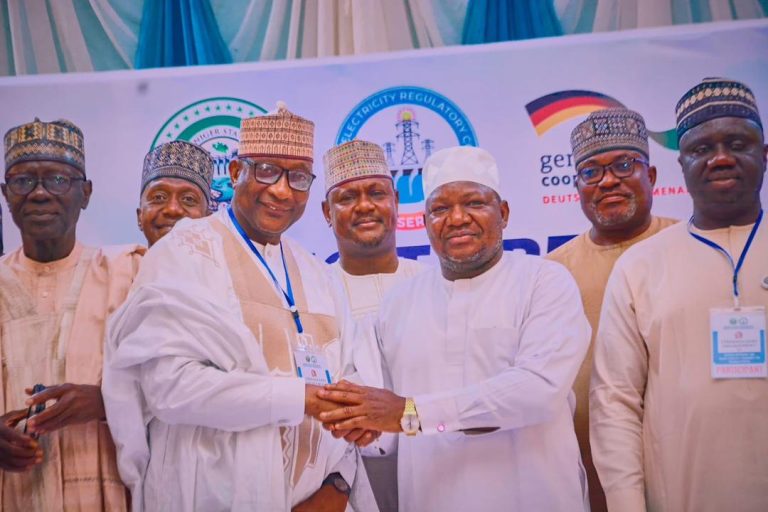By NEXTER
The Pro-Chancellor and Chairman, Governing Council, Federal University of Technology, Minna, Dr. Mohammed Kudu Santuraki, has said the establishment of a sub-national electricity market under the Nigerian Electricity Act 2023 is a pivotal milestone that will position Niger State as a model for decentralized electricity regulation in the country.
He stated this at the first stakeholders engagement forum organized by the Niger State Electricity Regulatory Commission (NSERC), in Minna, the state capital.
President Bola Ahmed Tinubu had in June 2023, signed the new electricity regulatory act into law, de-centralizing and de-monopolizing the generation, transmission, and distribution of electricity at the national level, and empowering states, companies and individuals to generate, transmit and distribute electricity across the country.
According to Santuraki, Niger State is uniquely positioned to capitalize on the opportunities created by the new Electricity Act, given its strategic advantage with nearly 100% of Nigeria’s hydropower assets and approximately 3,000 MW of installed capacity, accounting for over half of the nation’s electricity generation.
He said: “Furthermore, with a landmass exceeding 76,000 square kilometers, Niger State lies within Nigeria’s high solar irradiance belt, receiving an estimated six
Gigaatt-hour (GWh) of solar energy per square kilometer daily.
“This geographic and climatic advantage offers the state immense potential for hosting utility-scale solar farms.
“In addition, the state is dotted with numerous underutilized potential small dams, presenting viable options for decentralized and captive power generation across rural and industrial clusters.”
Santuraki, who is also Chairman of the Niger State Electricity Market Stakeholders’ Engagement, noted that the stakeholders’ forum was a clear demonstration of the NSERC’s commitment to transparency, stakeholder engagement, and purposeful reform.
He emphasized that the engagement marks a beginning, not an end, signaling the start of a sustained and open dialogue between regulators and the regulated, as well as between government and citizens.
Santuraki said: “We are here not merely to consult, but to collaborate. The establishment of a sub national electricity market under the framework of the Nigerian Electricity Act 2023 is a pivotal milestone.
“It should deepen energy access, drive local and economic development. These should position Niger State, often rightly referred to as the Power State, given its hosting of all the nation’s hydropower assets, as a model for decentralized electricity regulation in Nigeria.”
He commended the state Governor, Umar Mohammed Bago, for his “visionary commitment” to electricity sector reform, and the Executive Chairman of NSERC, Engr. Mohammed Sharu, for the “steady and commendable” progress made since the enactment of the Niger State Electricity Law in December 2024.
Santuraki calls for partnership, collaboration, and cooperation among power sector stakeholders operating in the state, “as they work together to shape the future of energy in Niger State and Nigeria.”

